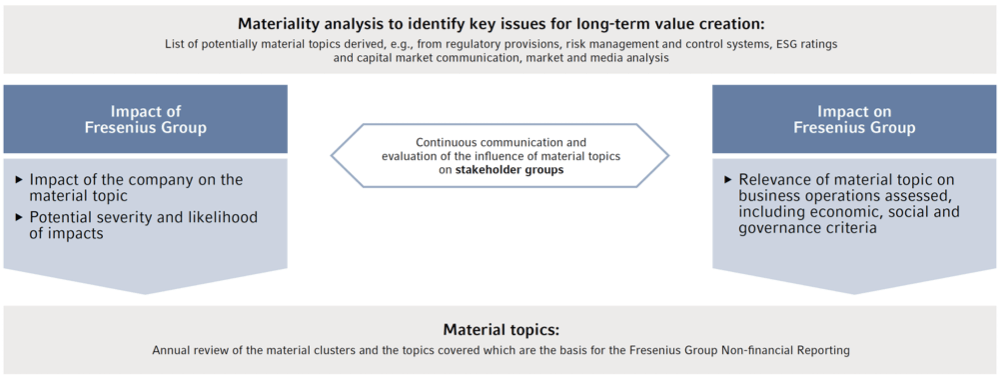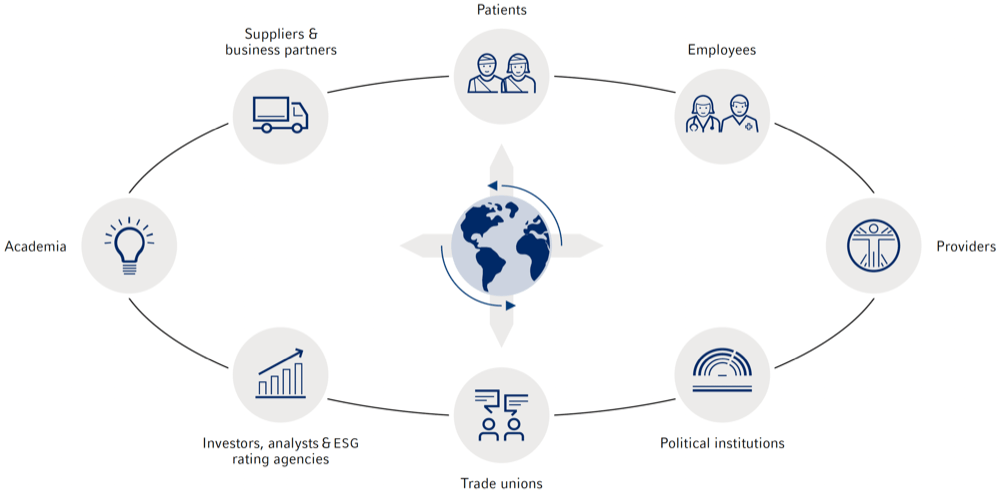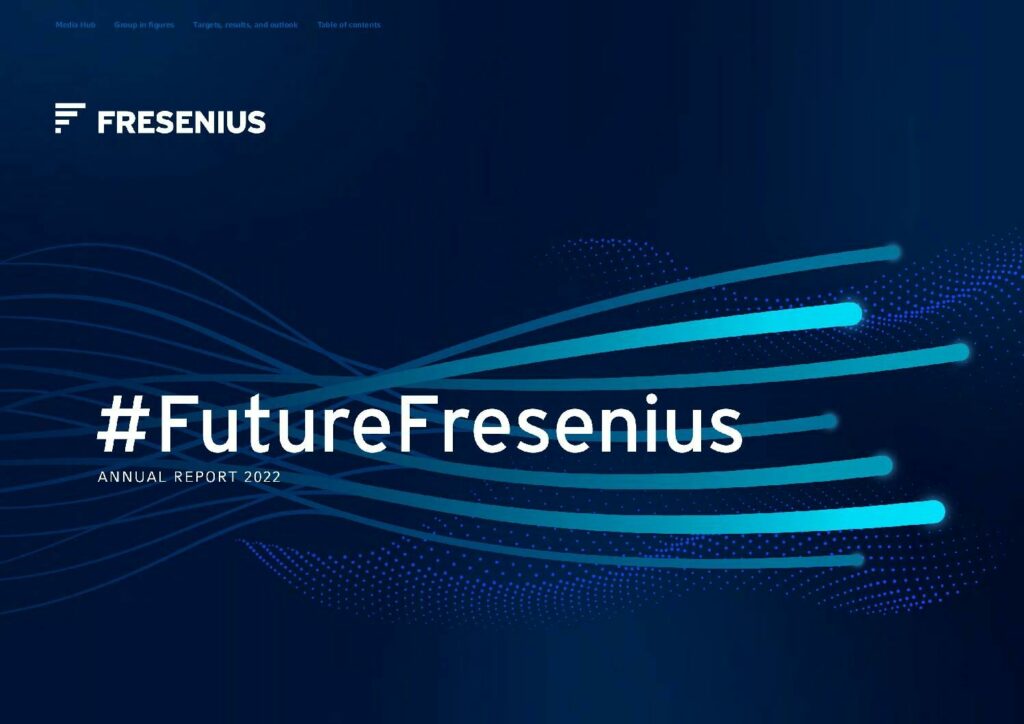Since 2017, we have been identifying the material topics for the Fresenius Group in a comprehensive materiality analysis. This is carried out every two to three years, depending on possible changes in the corporate structure and the operating business performance. In addition, we review the material topics annually to ensure that they are up to date. Material are those aspects that are relevant for understanding Fresenius’ business performance, results of operations, and position, as well as for understanding the effects of its business activities on the non-financial aspects.
We conducted our last comprehensive materiality analysis in the 2020 reporting year. The multi-stage analysis process in accordance with the German Commercial Code (HGB) and Global Reporting Initiative (GRI) is described in the Fresenius Sustainability Report 2020. In 2021, we checked the actuality of the analysis by means of an environment analysis, followed by a review in the GSB in 2022. This was followed by an assessment regarding potential changes in materiality with those responsible in the business segments and a gap analysis base on recognized ESG ratings and reporting standards, e. g. GRI. Based on the results, the reporting structure was adjusted and aligned with the responsibles.
Materiality review

Materiality analysis results
The review of the materiality analysis in the reporting year did not indicate any changes in the 6 material non-financial topic clusters and 15 individual topics compared to the previous year. However, the content of individual topics and topic clusters was further deepened in the reporting year, such as the topic Cybersecurity, which is presented in a chapter of its own since 2022. The structure of the chapters in this report reflects the main topic clusters. The various individual topics are assigned to the chapters according to their prioritization, and their management approach is described according to the requirements of GRI and the HGB.
Stakeholders and partnerships
Fresenius is involved in a diverse network of stakeholder groups. We gain valuable insights from this exchange, which we use to continuously develop our quality and sustainability management as well as our reporting procedures. Our main stakeholders are visualized in the graph below. Our exchange with political institutions and external organizations are focused on the fields of healthcare and patient care.
Stakeholders & Partnerships

Comprehensive stakeholder dialog
We are in contact with our stakeholders through different channels: The Fresenius Group functions focus on stakeholder communications relevant for the overall Group, while the business segments focus on direct contact with patients, customers or regulatory bodies. Because of their stock-listed status, Fresenius SE & Co. KGaA and Fresenius Medical Care, in particular, are constantly in contact with investors and analysts and available to clarify queries. The four business segments regularly contact their own stakeholders. The GSB is of great importance for exchange within the Fresenius Group.
We plan to expand our stakeholder engagement as part of our materiality analysis. For the reporting year, we have again considered the requirements of rating agencies and regulators. The departments and business segments have contributed the views of their respective stakeholders.
We submit key environmental data, such as information on emissions or water, to the international non-profit organization CDP (Carbon Disclosure Project). Furthermore, we respond to the information requirements of our stakeholders and publish material information in accordance with the reporting standard TCFD (Task Force on Climate-related Financial Disclosures) and an overview of material information and indicators in accordance with the provisions of the U.S. reporting standard SASB (Sustainability Accounting Standards Board). The information according to TCFD and SASB can be found in the section ESG KPIs and standards.
Our work in associations and initiatives
Our employees bring their expertise to national and international boards, committees, and associations. In part, this is accompanied by industry agreements or obligations. The following initiatives and memberships are currently of particular strategic importance for the business segments:
- BVMed – German Medical Technology Association – Member: Fresenius SE & Co. KGaA, represented on the Management Board through Fresenius Kabi
- IQM – Initiative Qualitätsmedizin – Founding and Management Board member: Helios Germany; actively chairs committees; voluntary commitment to quality principles
- DAI – Deutsches Aktieninstitut – Member: Fresenius SE & Co. KGaA, Fresenius Medical Care
- Medicine for Europe – Member: Fresenius Kabi; commitment to the Code of Conduct
- VCI – German chemical industry association – Member: Fresenius SE & Co. KGaA







